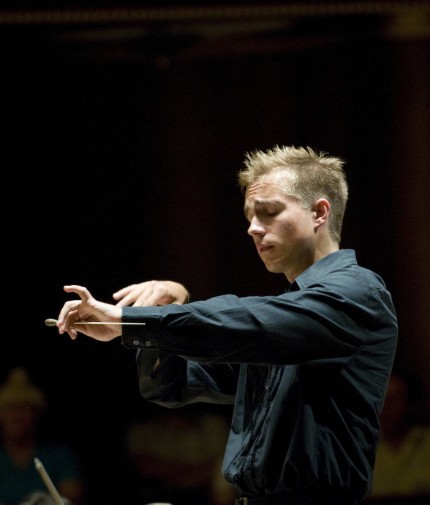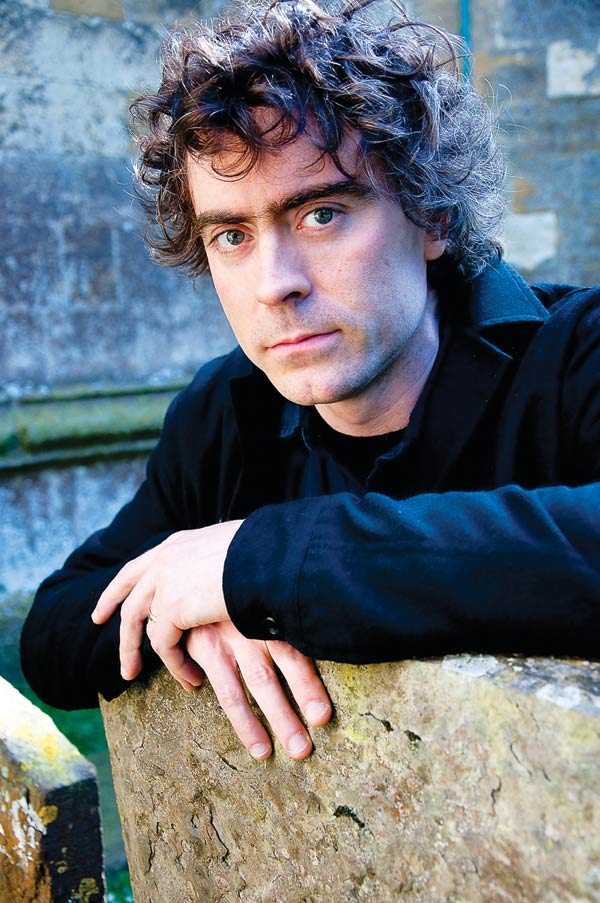Petrenko, CSO deliver the musical heat in a chilly new year

Chicago may have opened the new year with a frigid wintry blast but the Chicago Symphony Orchestra’s music-making provided ample heat Thursday night at Orchestra Hall.
Led by Vasily Petrenko, the main item of the CSO’s first program of 2015 was a concerto warhorse played by Paul Lewis yet it was the Late Romantic rarities framing the program that provided the greatest rewards.
Petrenko looks even younger than his 38 years and, for the most part, the slender Russian conductor built upon the strong impression made in his CSO debut two seasons ago. Currently conductor of the Oslo Philharmonic Orchestra, Petrenko directs the music with wide, swooping gestures, yet drew responsive tight playing with well-balanced textures.
Elgar opened the evening as it did in Petrenko’s debut. Like many composers before him, Sir Edward Elgar found musical inspiration on his first trip to Italy, and the result was In the South (Alassio). At over twenty minutes, the work is more a tone poem than concert overture, yet remains among the English composer’s finest works— richly varied and smartly scored for large orchestra with a characteristic vein of noble and nostalgic melody.
Petrenko is clearly a dedicated Elgarian, and knows his way in this challenging music. The upward rising opening theme had superb energy and cinematic sweep, and Petrenko ensured each ensuing section was fully characterized without the canvas becoming episodic. The religious pilgrims marched with a sonorous tread and the central “Canto populare” episode was gentle and magical, though Li-Kuo Chang’s sweet-toned viola solo would have benefited from more dynamically nuanced delicacy.

The evening’s centerpiece was Beethoven’s Piano Concerto No. 5 with Paul Lewis as soloist. Last month Manfred Honeck showed how it is possible to provide fresh urgency to a Beethoven warhorse with a fizzing performance of the Seventh Symphony.
That didn’t happen Thursday night. Lewis specializes in music of the central Austro-German repertory and has delivered fine Mozart and Schubert performances in Chicago. Sturdy, reliable and note-perfect, Lewis’s Emperor was a model of polish and taste.
But do we really want taste in Beethoven? Everything was in place and eminently well judged, yet the overall effect was rather faceless. Lewis’s playing was respectable to a fault where one wanted more fire, vitality and some degree of idiosyncrasy. In the Adagio the pianist’s touch was poised and graceful but lacking rapt intimacy and innigkeit. The Rondo closed things in spirited fashion but without the wit or joyous elan to make the music take flight.
Apart from some wizened flute playing, Petrenko elicited lean yet alert support from the orchestra, the strings glowing in the hymn-like opening of the slow movement. David Herbert utilized his low Classical timps but the instruments felt decidedly soft focus for Beethoven’s grandest concerto.
Rachmaninoff’s Symphonic Dances has never enjoyed the popularity of his concertos and Second Symphony, though the work is occasionally warily invited in from the fringes of the repertoire like an obnoxious wealthy uncle. There is much fine music and masterful scoring in Rachmaninoff’s final effort from 1940, as one feels the Russian composer moving to find a less sumptuous, more “modern” esthetic.
Petrenko is clearly in synch with Rachmaninoff’s idiom, and the opening movement was finely transparent yet with imposing Slavic weight. Tim McAllister was a starry guest ringer, floating a lovely nocturnal saxophone solo in the contrasting section, taken up with gleaming richness by the strings in their iteration.
The conductor’s extreme rubato and lingering flirted with fussiness in the central Andante yet Petrenko brought out the strangeness of the spectral waltz nicely, with a fine obbligato assist from concertmaster Robert Chen. Petrenko melded the finale’s variegated elements most convincingly—the explosive chords, martial drive and jumpy adrenaline, along with echoes of the composer’s favored Dies irae and Orthodox music, culminating in a rousing coda. A few excitable audience members broke in with premature if understandable applause before the final tam-tam note finished resonating.
The program will be repeated 8 p.n. Friday and Saturday. cso.org; 312-294-3000.
Posted in Uncategorized




